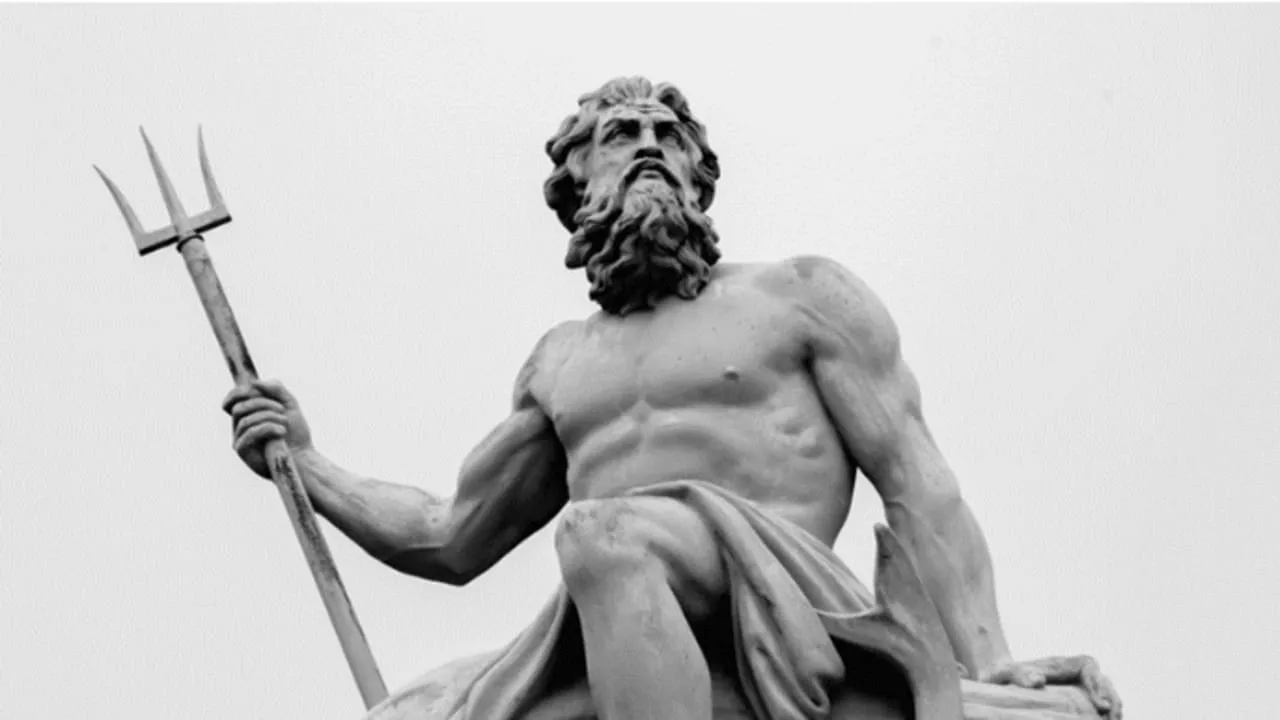
when Horror Yearbook – Poseidon has long stood as one of the most powerful and recognized gods in Greek mythology. Known as the ruler of the sea, earthquakes, and horses, he carries a trident and commands storms with a single gesture. Artists and writers from ancient times to modern days have used his figure to symbolize raw natural force. People often associate him with majestic ocean waves and the danger lurking beneath. Yet beyond the myths and stories told in temples or passed down in epic poems, some believe there is more to Poseidon than fiction. His origins may tie back to older sea gods worshipped before the rise of classical Greece. His name appears in Mycenaean tablets, suggesting deeper roots than many imagined. Even his symbols echo other ancient deities from faraway lands. To understand Poseidon fully, one must go beyond the surface of legend and dive deep into cultural history and ancient belief systems.
The myth of Poseidon did not appear in isolation. Scholars now believe that the story of Poseidon may have been influenced by real seafaring civilizations around the Mediterranean. These early cultures built their entire way of life around the sea. They respected and feared its power. Ancient mariners prayed for safe passage, and communities relied on ocean trade to survive. In this environment, it made sense to imagine a god like Poseidon ruling the tides. His image could have evolved from local spirits or water deities merged over generations. Poseidon reflects the dual nature of the sea itself. Calm and generous one moment, violent and destructive the next. The Minoans and Phoenicians worshipped marine powers with similar traits. Some ruins even suggest early temples once honored ocean gods before the Olympian pantheon rose to dominance. So while Poseidon is remembered through myth, his spirit may have emerged from collective human experience with the sea.
“Read about: Dokkaebi Exposed: The Mythical Trickster That’s Becoming More Human Than Ever!”
Poseidon may be a myth today, but his worship in ancient times was very real. Historical records and archaeological findings show that rituals dedicated to him spread across multiple Greek regions. Massive temples stood in his honor in places like Corinth and Cape Sounion. Seafarers offered sacrifices before voyages. Earthquake-prone areas believed Poseidon needed to be kept calm to prevent disaster. Even in mainland Greece, far from the coast, his presence influenced ceremonies and festivals. His cult played a key role in political and spiritual life. Offerings were made during horse races and athletic competitions to seek favor and fortune. Ancient texts mention hymns sung to him by choirs of devoted followers. These practices reveal how deeply Poseidon was integrated into society. People viewed him not as a fairy tale, but as a force deserving respect and worship. His image may seem mythical today, but once it shaped real human behavior and belief.
“Read more: Still Workout While Injured? Yes, And Here’s How to Do It Safely!”
Though Poseidon belongs to legend, the forces he represents still rule the Earth today. Scientists study ocean currents, earthquakes, and underwater volcanoes to understand the same phenomena that ancient Greeks feared and admired. The ocean remains unpredictable. Earthquakes continue to strike without warning. Tidal waves and storms remind humanity of its smallness in nature. In a way, Poseidon has never disappeared. His power lives on in the elements. Some researchers explore how mythology acts as early science. Ancient people gave stories to forces they could not yet explain. They observed patterns and built narratives. These tales became teaching tools across generations. Poseidon’s legend served to explain why the earth shakes or the sea swells. While today we measure tectonic shifts and weather patterns with machines, the instinct to tell stories about them still lingers. The myth of Poseidon, therefore, speaks to a timeless human need to name and understand the unknown.
From literature to video games, Poseidon continues to influence modern storytelling. He appears in books, films, and art around the world. Writers reimagine him as both hero and villain. His name is used for ships, underwater research programs, and even space exploration missions. The idea of Poseidon carries meaning beyond just myth. It reflects power, mystery, and the allure of the deep. Artists often return to him when they want to capture the sea’s magic. Musicians write songs using his name to express emotional depth and transformation. His trident becomes a symbol of command and independence. The reach of Poseidon spans cultures and generations. Children still learn about him in school. Digital media brings his story to new audiences. Through this continued presence, Poseidon remains more than just a character from the past. He has become a permanent part of how humans explore themes of nature, strength, and the unknown.